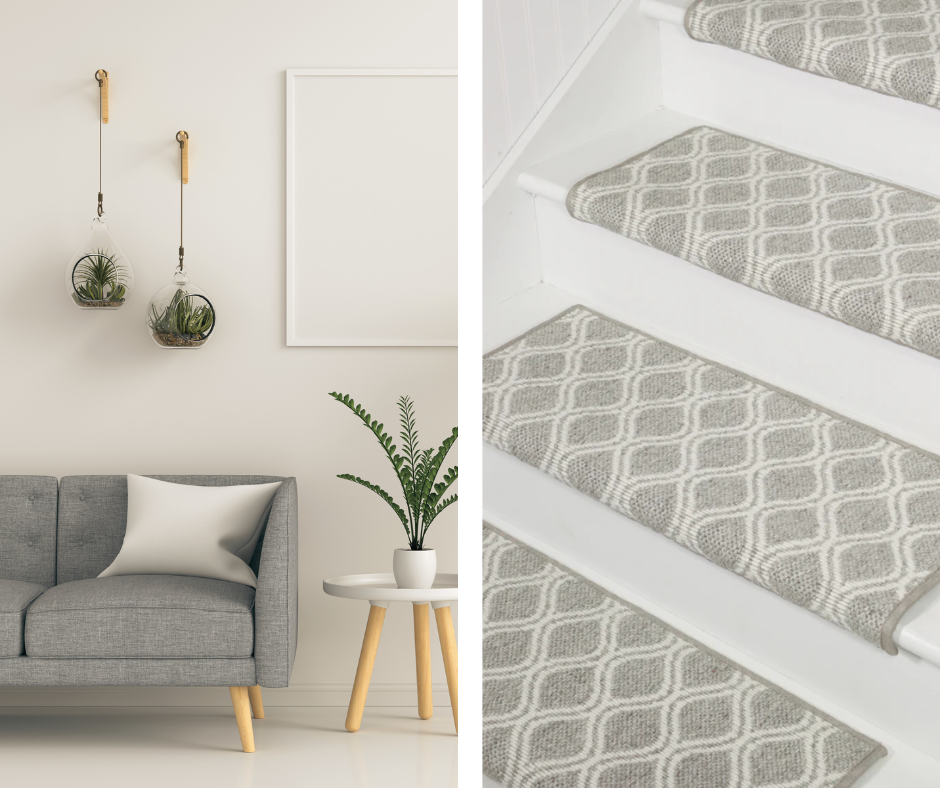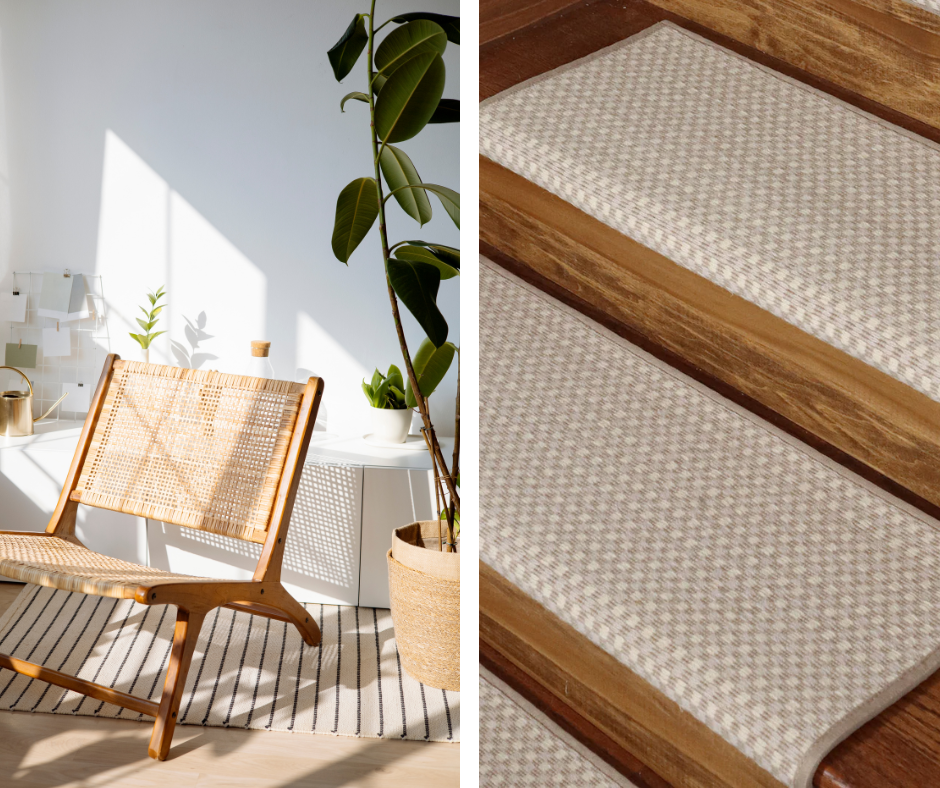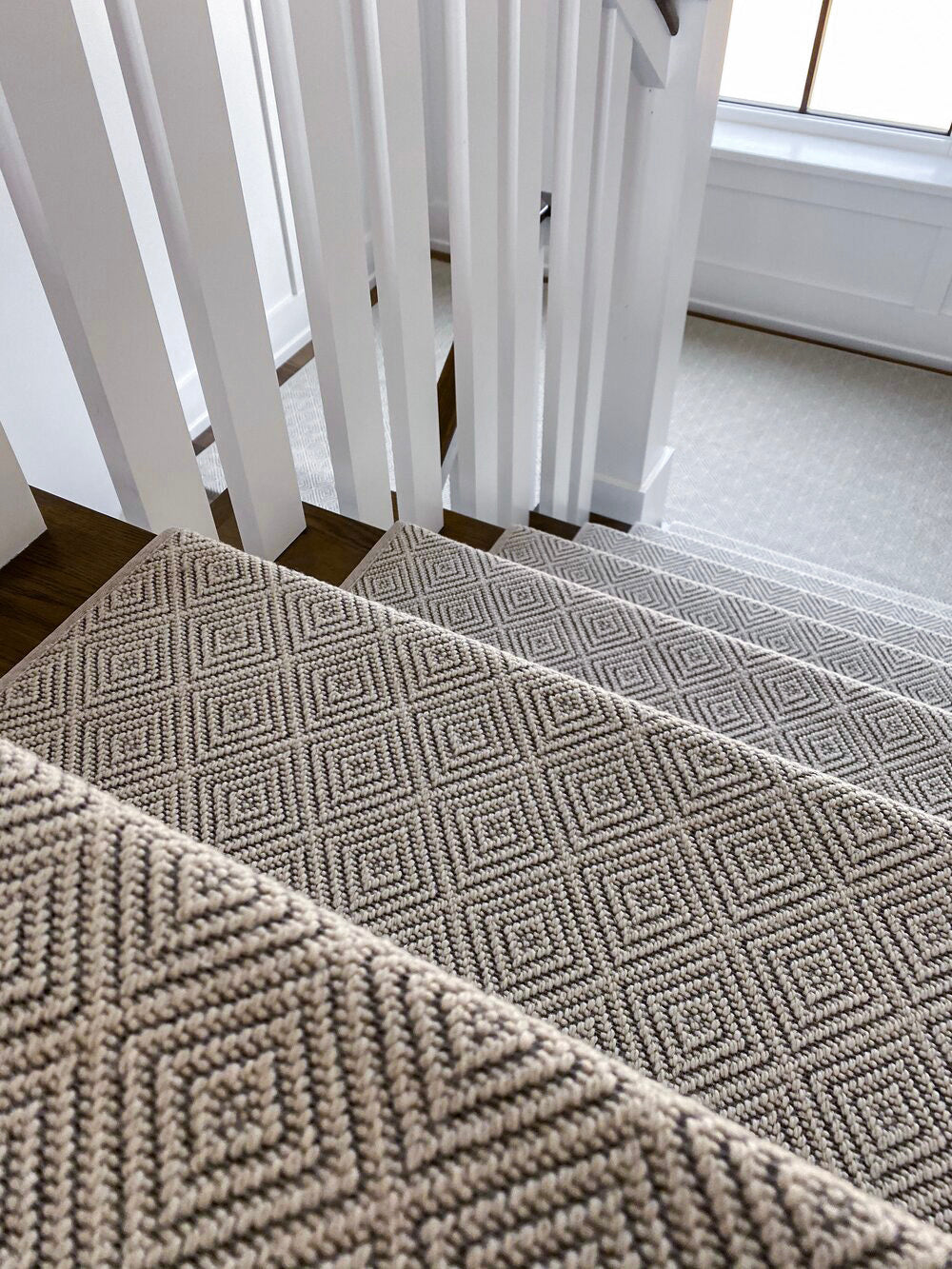Traditional polypropylene stair treads are a great way to add both style and safety to your home.
These treads are tough and can handle lots of foot traffic.
Although they are not as durable as wool, they are a very popular choice for carpet stair treads.
Plus, they provide a non-slip surface that makes your stairs safer without sacrificing style.
Benefits of Polypropylene Stair Treads
Polypropylene stair treads have a lot of perks.
They resist moisture and stains, so they stay looking nice even with lots of use.
They're also durable, keeping their color and texture for a long time, depending on the quality of the treads you buy.
Is Polypropylene Good for a Stair Runner?
Yes, polypropylene is great for stair runners!
It's durable and resists stains.
Because it doesn’t soak up moisture, it helps prevent mold and mildew.
This makes it a smart choice for areas where spills might happen or where there's a lot of humidity.
Can You Carpet Clean Polypropylene?
Absolutely, you can clean polypropylene carpets just like any other carpet.
Regular vacuuming and an occasional deep clean with a carpet cleaner will keep them looking fresh.
Just be sure to avoid harsh chemicals, as they can harm the fibers.
Polypropylene’s stain-resistant nature makes it easier to maintain than many natural fibers.
Different Materials for Stair Treads
When picking stair treads, it's good to know your options.
Different materials offer different benefits and looks.
Traditional Wool Stair Treads
Wool stair treads feel luxurious and naturally insulate your home.
Wool is a sustainable, biodegradable material that’s durable and comfy.
But, it can be pricey and needs regular upkeep to avoid stains and wear.
Traditional Jute Stair Treads
Jute is a natural fiber that gives a rustic, eco-friendly touch to stair treads.
It’s affordable and biodegradable, which is great for the environmentally conscious.
However, jute stair treads aren't as tough as synthetic fibers and might not hold up in high-traffic areas.
How Long Do Polypropylene Carpets Last?
Polypropylene carpets are pretty long-lasting, usually between 5 to 10 years depending on how much traffic they get and how well you take care of them.
With regular cleaning and a bit of care, these carpets can keep looking good for a long time.
And they are a cost-effective choice.
Comparing Polypropylene to Other Materials
When you compare polypropylene to wool and jute, you’ll see some differences.
Polypropylene is more affordable and easier to maintain than wool.
It’s also tougher than jute, making it better for busy areas.
Wool feels cozier and insulates better, but it stains easier and usually needs professional cleaning.
Jute gives a natural, rustic look but isn’t as durable.
Installation and Maintenance Tips
Installing Polypropylene Stair Treads
Installing polypropylene stair treads is easy.
You can use adhesive strips or tacks to secure them.
Make sure they’re attached well to prevent slipping and keep your stairs safe.
Maintaining Polypropylene Stair Treads
To keep polypropylene stair treads looking nice, vacuum regularly to get rid of dirt and debris.
For a deeper clean, use a steam cleaner with mild detergents to avoid damaging the material.
Final Thoughts
Traditional polypropylene stair treads are a smart and affordable way to make your stairs safer and more stylish.
They’re durable, resist stains, and are easy to clean.
This makes them perfect for busy homes.
Knowing the benefits and drawbacks of different materials can help you choose the best option for your home.




